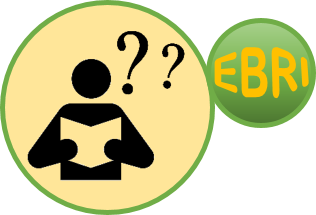
Learn how to administer and interpret diagnostic reading assessments for adult learners, how to build individual reading profiles, and how to use this information to plan effective evidence-based reading instruction (EBRI). This course will include how to remotely conduct a diagnostic reading interview, including the background questionnaire and assessments of Word Reading, Oral Vocabulary, and Oral Reading Fluency.
Please note: STAR training also fills this prerequisite, so STAR-trained practitioners do not need to take this course, but can choose to do so as a refresher.
- ELA teachers
- Program staff involved with assessing the reading levels of the adult learners
- Anyone who wants to take further EBRI PD offerings
This professional development activity/course is designed for:
EBRI: Diagnostic Assessments of Reading focuses on diagnostic assessment of adult learners' reading strengths and instructional needs. The strategies presented will also help students who are struggling or who have learning challenges.
EBRI is a set of practices, grounded in research and professional wisdom, for teaching the four essential components of reading (alphabetics, fluency, vocabulary, and comprehension) to adult learners. WIOA specifies that “the essential components of reading instruction” be incorporated into instruction.This PD offering is a prerequisite for all further EBRI trainings.
Please note: Previous completion of or current enrollment in the STAR training fulfills the prerequisite for further EBRI trainings. If you have completed STAR you do not need to take this course in order to take other EBRI PD.
Schedule—This course is composed of four parts, totaling 12 PD hours. Completion of all components is required in order to receive any PD hours. While this training is not eligible for PDPs by itself, it may be bundled with other EBRI opportunities to earn PDPs.
(1) Complete 7 hours of online self-paced modules, over the first two weeks:
- The relationship between diagnostic assessment and EBRI
- Administering free individual assessments in alphabetics, fluency, and vocabulary
- How to remotely conduct a diagnostic reading interview
- Using learners’ diagnostic reading profiles to determine their strengths and instructional needs (i.e., which components to emphasize and at what level)
(2) Complete the practicum during the next two weeks, and post your results and notes on the BlackBoard learning management system. Review the results and notes of your fellow practitioners. (2 hours)
(3) Read a case study during the final weeks, and be prepared to discuss it in the closing live webinar. (1 hour)
(4) In the closing live webinar (2 hours) with Dr. John Strucker on December 18, 2020:
- Present assessments and learner profiles
- Discuss the various learner profiles with the group, and share assessment experiences and insights
- Discuss the case study
- Discuss some of the challenges faced in implementing diagnostic assessments, and possible solutions to those challenges
This course is in Blackboard and is not accessible from the SABES website. Once you have registered and your completion of the prerequisite is verified, you will receive a separate email from Joanne Harrington at Quinsigamond Community College with instructions on how to access the Blackboard course.
- Explain why diagnostic assessment is critical to EBRI
- Administer and interpret diagnostic assessments in alphabetics, fluency, and vocabulary
- Create a learner's reading profile, based on assessment results and the learner's MAPT reading score
- Summarize the assessment results to inform classroom groupings and instruction
Upon completion of this professional development activity/course, you will be able to:
Current dates for the following are at ELA PD Events:
- Required: Overview of EBRI. (Previous completion of or current enrollment in the STAR training fulfills this requirement.)
- Recommended: The Recipe for Success: The CCRSAE and Instructional Shifts for ELA.
Online
United States


